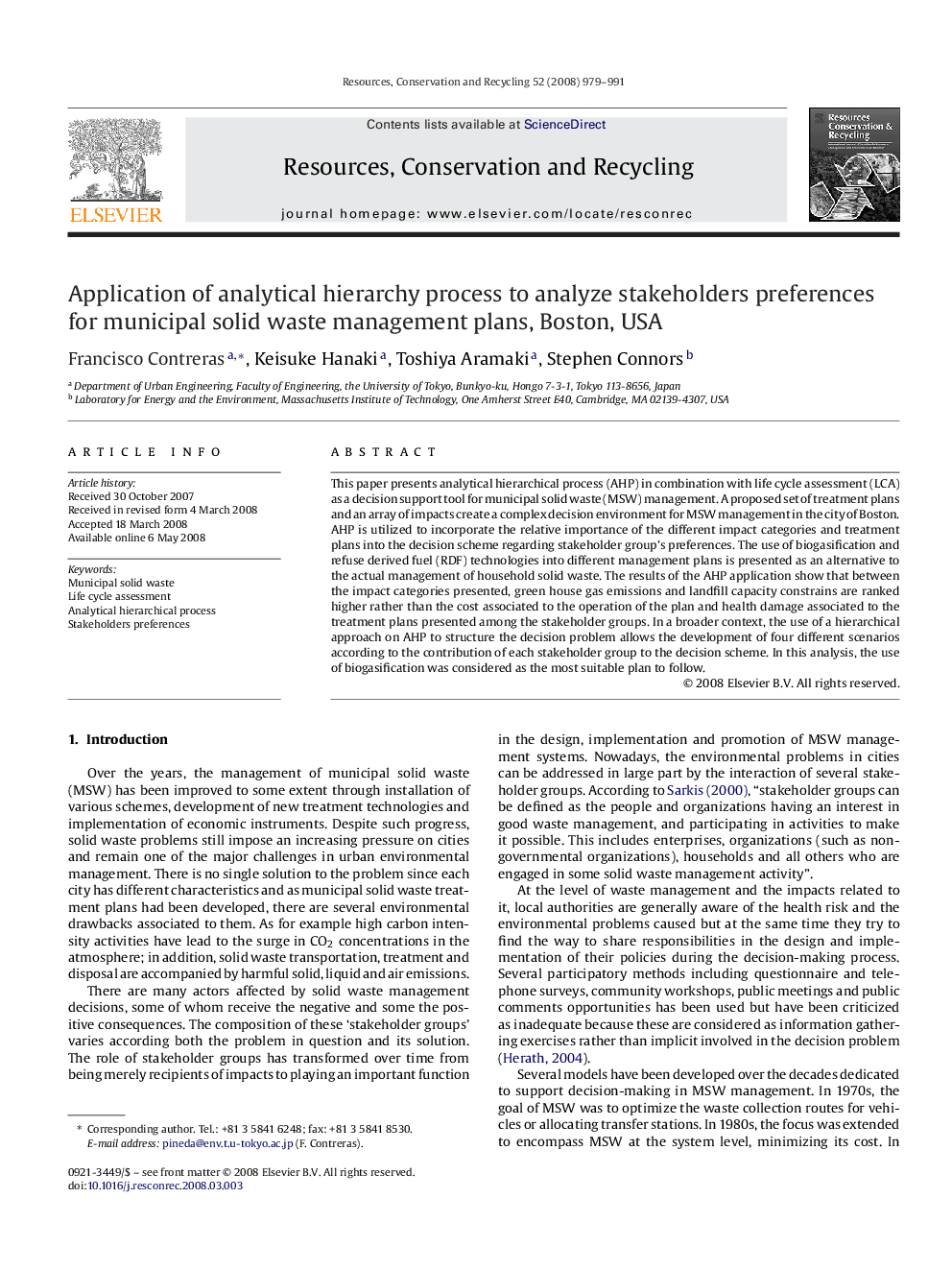| Article ID | Journal | Published Year | Pages | File Type |
|---|---|---|---|---|
| 1064213 | Resources, Conservation and Recycling | 2008 | 13 Pages |
Abstract
This paper presents analytical hierarchical process (AHP) in combination with life cycle assessment (LCA) as a decision support tool for municipal solid waste (MSW) management. A proposed set of treatment plans and an array of impacts create a complex decision environment for MSW management in the city of Boston. AHP is utilized to incorporate the relative importance of the different impact categories and treatment plans into the decision scheme regarding stakeholder group's preferences. The use of biogasification and refuse derived fuel (RDF) technologies into different management plans is presented as an alternative to the actual management of household solid waste. The results of the AHP application show that between the impact categories presented, green house gas emissions and landfill capacity constrains are ranked higher rather than the cost associated to the operation of the plan and health damage associated to the treatment plans presented among the stakeholder groups. In a broader context, the use of a hierarchical approach on AHP to structure the decision problem allows the development of four different scenarios according to the contribution of each stakeholder group to the decision scheme. In this analysis, the use of biogasification was considered as the most suitable plan to follow.
Related Topics
Physical Sciences and Engineering
Energy
Renewable Energy, Sustainability and the Environment
Authors
Francisco Contreras, Keisuke Hanaki, Toshiya Aramaki, Stephen Connors,
